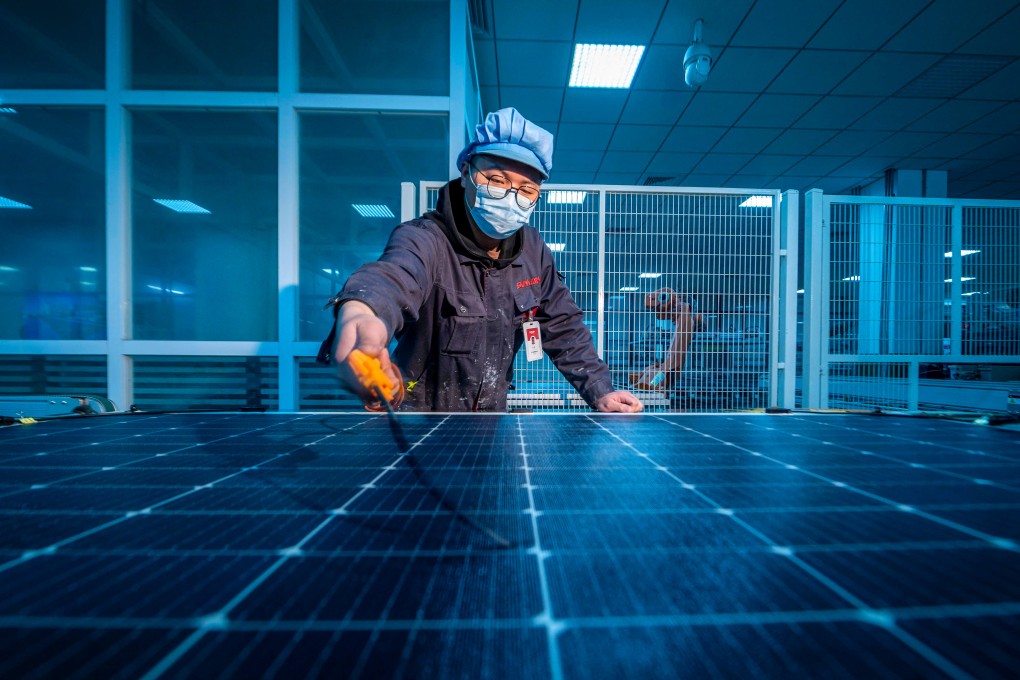Advertisement
Chinese state media takes aim at US overcapacity claims as wary G7 insists on playing field level
- The United States is trying to reduce China’s advantages in new energy industries, researcher says
- G7 finance chiefs say they’re worried about Chinese ‘non-market policies and practices’ that undermine workers and industries in their economies
Reading Time:2 minutes
Why you can trust SCMP
37

Chinese state media took another shot at US claims that the world’s second-biggest economy is exporting its excess industrial capacity, saying Washington was exaggerating the issue to blunt China’s edge.
The commentary in Communist Party mouthpiece People’s Daily on Sunday came a day after G7 finance chiefs expressed concerns about China’s “non-market policies and practices” that undermine “our workers, industries, and economic resilience”.
The finance chiefs said they would continue to monitor the potential negative impacts of overcapacity and would consider taking steps to ensure a level playing field, in line with World Trade Organization principles.
Advertisement
They also raised concerns about trade ties between Beijing and Moscow.
The overcapacity claims and counterclaims are the latest exchanges in the international row over China’s alleged exports of subsidised electric vehicles, solar panels and new energy batteries.
Advertisement
Advertisement
Select Voice
Select Speed
1.00x
